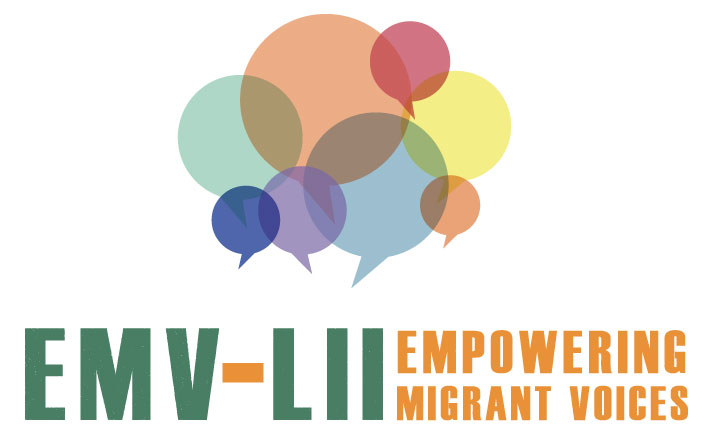EMV-LII
The project EMV-LII is preparing Research Reports on migrant participation in Austria, Italy, Germany, Greece, Croatia, Luxemburg and Slovenia.
A research guideline based on explorative interviews and focus groups with LA and migrant reps will be developed, translated and applied in the 8 local areas resulting in local baseline assessments of local/regional integration strategies and migrant participation, that will inform the local work and will be summarized in a European level assessment including good practices and recommendations to be shared.
Once finished they will be published here.
EMVI National reports on participation of migrants 2022-2023
The EMVI national reports on political participation of migrants in Austria, Germany, Greece, Italy and Slovenia were published beginning of September 2022. These include a thorough analysis and good practice examples. They form the basis for a joint European Good Practice Guide that we are developing now. See below the national reports for Download in English
National Report on political participation of migrants in Austria
National Report on political participation of migrants in Germany
National Report on political participation of migrants in Greece
National Report on political participation of migrants in Italy
National Report on political participation of migrants in Slovenia
ALL 5 national reports AT, DE, GR, IT, SI in one file
EMVI Good Practice Guide
This Good Practice Guide brings together the most important findings about the possibilities for the political participation of migrants and diasporic communities in five project consortium countries: Austria, Greece, Germany, Italy and Slovenia, based on the national reports.
Focusing on good practices of migrant political participation in each country, policy recommendations to public (local, regional, national) authorities are made to encourage the structural and systemic improvement of migrants’ engagement and political participation on a local, regional and national level.
It is prepared for decision-makers, public authorities, migrant leaders and organisations, local stakeholders and all those who will find it useful for implementing policies and methods for structural migrant participation, inclusion and emancipation.
